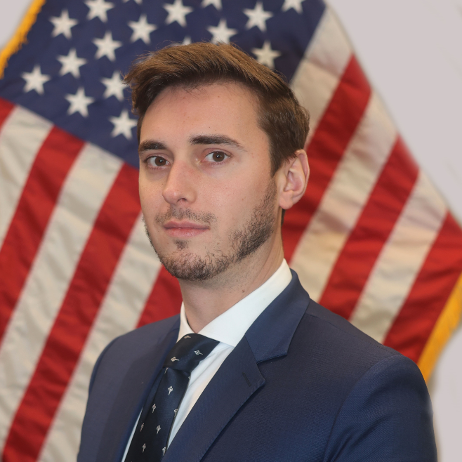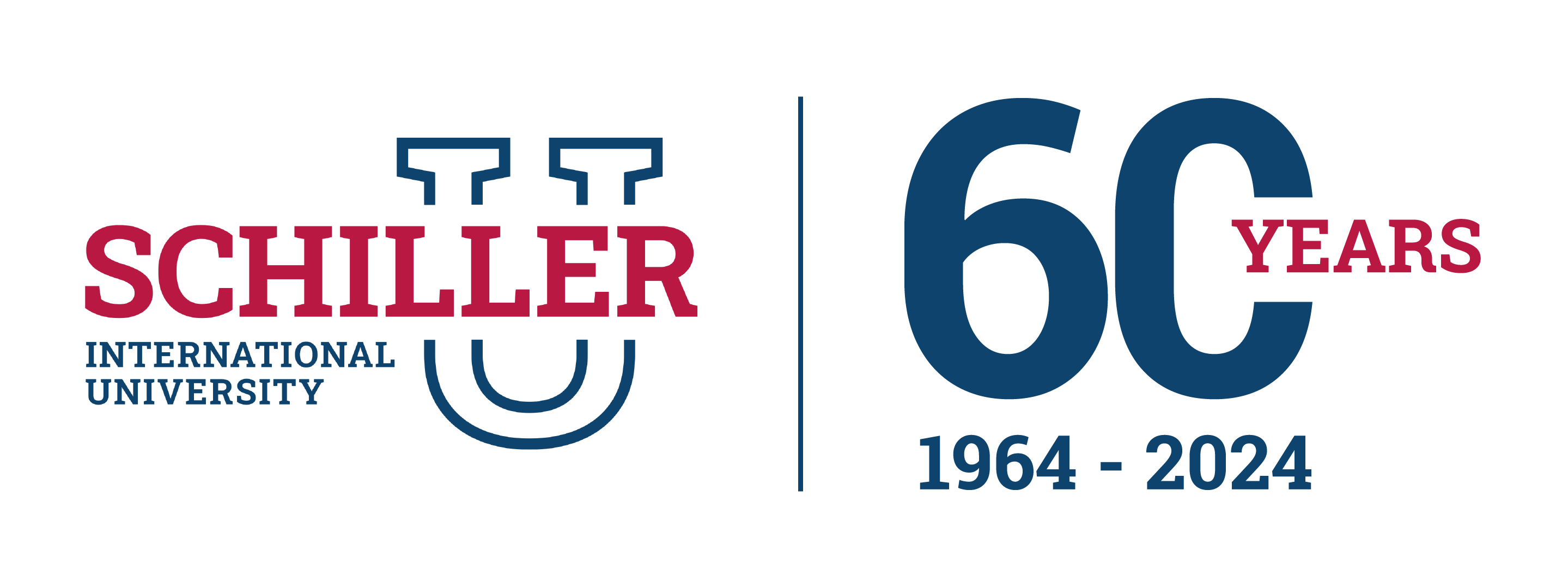Donald Valicenti: “Schiller’s unique schedule allowed me to build a strong CV and compete for jobs in Europe and the United States”
Alumni Spotlight: Donald Valicenti: “Schiller’s unique schedule allowed me to build a strong CV and compete for jobs in Europe and the United States”

In the latest Alumni Spotlight interview, we delve into the journey of Donald Valicenti, Vice-Consul of the U.S. Department of State in Pakistan, whose academic endeavors at Schiller International University’s Madrid Campus set the foundation for an very interesting career in diplomacy. Between 2014 and 2019, Donald majored in International Relations and Diplomacy, a field that perfectly aligned with his subsequent roles within the U.S. Foreign Service. Having served as U.S. Vice Consul in Mexico, Peru and now in Pakistan, Donald reflects on his professional trajectory, cherished memories, and the profound impact of Schiller’s methodology and style in his education and career. He offers insightful advice to current students – “In today’s international market, your real-world experience, ability to network, and a healthy work ethic are valued far more than the prestige of your degree, your social background, or overworking yourself” - and shares the enriching experiences gained from living in diverse cultures while working in various countries. Join us as we explore Donald's story, from his initial discovery of Schiller University to his aspirations and challenges within the diplomatic sphere.
Can you tell us about your professionally trajectory and what you do today? Where do you live?
While in university in Madrid, I worked jobs in local government, national government, and private enterprises to get my career started. By the time of my graduation from Schiller, I was working at a couple of private companies. In 2019, the U.S. Foreign Service offered me employment, which I accepted. Since then, I’ve been a U.S. Vice Consul in Mexico, Peru, and now in Pakistan.
How did you discover Schiller?
I found Schiller simply searching around online. I wanted the chance to live abroad without sacrificing my education and career orientation, and Schiller seemed to give me that opportunity.
Can you share some of your fondest memories from your time at Schiller International University?
I remember my time at Schiller quite fondly. Organizing and leading a team to Salamanca, Spain and then to Agadir, Morocco to compete in international Model United Nations events stands outs in my mind. It was quite an experience that I think benefited all of us who participated as well as Schiller’s public profile. Taking a trip to Serbia and observing the refugee process outside of Belgrade was also a unique opportunity, albeit at times a somber one.
How would you describe the spirit and culture of Schiller during your years on campus?
The culture at Schiller’s Madrid Campus during my time there was a real mix and made it one of a kind. Classes and interactions amongst the student body were rather relaxed, and a certain informality made it relatively easy to get to know our classmates from all over the world. This environment created a great place to engage in constructive debate and learn from our classmates’ perspectives on topics we discussed in class.
Who do you remember the most from your Schiller years?
I have the fondest memories of studying under Duncan Shaw and Chris Kostov. The two had very different teaching styles, and students could see how interested and engaged they were in what they taught. Years later I still remember some of their lessons that left an impression on me. On the administrative side, Paloma Mesonero and Isabel Campbell were huge assets to my education and to our university in general. The two always sought out ways to facilitate change and create an environment of engagement in the university. When somebody came to them with an idea, the answer was hardly ever a hard “no”, but rather a series of questions to push us in the right direction to make our proposals more viable. I learned a lot, both academically and professionally, from all four of them.
How has your education at Schiller played a role in your life since graduation?
My career is directly related to what I studied in university, which I am grateful for. Although other universities offered the same major and similar courses of study, the internationality of both the student body and the staff bring immensely different perspectives to not only consider but to learn respect for.
What do you consider to be the most valuable aspect of your Schiller experience?
Apart from the educational and university environment, Schiller’s unique schedule allowed for far more flexibility in what student’s did with their time. I was able to build a strong CV during my university years that allowed me to compete for great jobs both in Europe and the United States. My studies combined with the time to build myself professionally no doubt gave me a chance at working in my current field.
What advice would you give to current students to help them make the most of their Schiller experience?
My advice to current students is to take advantage of the knowledge and experience around you and to use your time wisely.
Your professors and fellow students have a lot to share. Listen and truly reflect on what it is that they are presenting to you. You may not agree on every topic, but you may find a different point of view that you have not yet considered. Use your time away from the classroom wisely. The extremes of entirely sacrificing your social life to study for the top grades or absolutely neglecting your studies and professional development for a few extra nights out could limit you. In today’s international market, your real-world experience, ability to network, and a healthy
work ethic are valued far more than the prestige of your degree, your social background, or overworking yourself. Time is extremely valuable.
What have you learned in each of the countries you have lived?
As I am sure many of Schiller’s current students and alumni have found themselves, culture and language are some of the best lenses to find a diversity of perspectives. I consider myself fortunate to have lived in different countries across the world, and partly for that reason.
What is the biggest challenge in your work? How did you start your career in the US Department of State?
I first worked with the Department of State as an intern at our embassy in Madrid, during my time at Schiller. Knowing that I really enjoyed studying international relations, learning about the intricacies of different cultures and societies and their significance, and broadly believing in the power of diplomacy, I applied to the U.S. Foreign Service. A long series of applications, exams, and clearances finally landed me in Washington, D.C. in June of 2019, and within four months I was on a plane as U.S. Vice Consul to Guadalajara, Mexico. As much as I enjoy my career, it isn’t without its challenges. Those challenges change as the career moves forward as well. From a professional point of view, some of the personal stories of the people I come in contact with as Vice Consul can be really difficult. U.S. Vice Consuls speak with an unusually high number of people every day. Many of those people make routine requests, such as visas to travel to the United States for business or tourism or registering their newborn children as U.S. citizens abroad. Still, many others seek help in more perilous situations, such as refuge from war and oppression, aid against criminal aggressors, or permission to travel for medical attention that very well may be their last hope. Balancing law, regulation, and what an individual requests can be a difficult and many times a life changing action for a lot of people we encounter.
What do you like most about it? How do you see yourself in 5 years?
Professionally I find real purpose in my work, and personally I have the unique opportunity to interact with individuals and experience places that would otherwise be unfeasible. This is a career that is difficult to plan for in the long term. Most of us are unaware of where we will be in the world the following year.

 Apply Now
Apply Now









